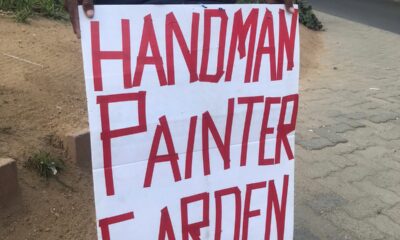Best of Johannesburg
Outrage Fatigue in South Africa: The Hidden Burnout Behind Our Constant Crisis Cycle

When caring becomes draining
If you’ve ever felt that no matter how much you read, no matter how much you protest, you just fade into silence, there’s a strong chance you’re experiencing what mental health professionals now label outrage fatigue. It’s a form of emotional exhaustion triggered by constant exposure to injustice, crime, corruption, and crisis. In South Africa, where headlines of service-delivery failures, high crime rates, and political scandals are the daily norm, this fatigue can creep in quietly but strongly.
The emotional pipeline gets overloaded
When the brain is repeatedly bombarded by shock and anger, it can’t stay switched on forever. In the beginning, we may feel fiery, ready to act. Over time, though, the nervous system tires out. Empathy dulls, energy flags, and we begin to pull back from news and debate. The switch from “I must do something” to “I can’t even bear to look” marks the shift.
Signs you might be heading into outrage fatigue include chronic tiredness despite rest, emotional numbness, irritability over small things, brain fog, withdrawal from social circles or news consumption, and that lingering sense that everything matters so little. These are also classic signals of emotional exhaustion in medical literature.
Why South Africans are especially vulnerable in 2025
In South Africa, the conditions are ripe:
-
A seemingly unending list of setbacks, regular load-shedding, crime sprees, and corruption scandals that keep the sense of crisis alive.
-
A 24-hour news and social media environment feeds outrage non-stop, making it hard to switch off.
-
A growing feeling that citizen action makes no visible dent, eroding the belief that it’s possible to change course.
-
And a nervous system that simply says, “I’m done” after too many alarms.
When your feed is full of yet another scandal, your neighbour is describing yet another drama, and you’re still waiting for your lights to stay on long enough to cook dinner, the emotional strain piles up.
What it looks like when it shows up
Instead of jumping into debate or mobilising, you might find yourself scrolling past shocking posts without feeling much. You might avoid political chat altogether. Possibly you’re watching less news, doing fewer community initiatives, or turning off your notifications entirely. That’s not apathy born of laziness; it’s self-protection.
Local voices and public reaction
On social media, you’ll spot comments like “I just can’t keep up anymore” or “What’s the point of being angry if nothing changes?” These often go unnoticed, but they point to a broader movement of quiet disengagement. A pattern: people still care, but caring hurts too much if the system never shifts.
A fresh look: fatigue, not guilt
Here’s a reframing: outrage fatigue isn’t guilt about not doing enough, and it’s not laziness. It’s the nervous system asking for a break. And recognising that may help shift the shame or self-criticism into acceptance of a physical signal, rather than a moral failure.
How to move through the fatigue and stay aligned
You don’t have to resign yourself to helplessness. There are practical steps that help reshape the way you engage:
1. Set news boundaries
Check news and social media at two defined times a day, not all day long. Allow your nervous system to rest.
2. Focus on what you can impact
Choose one local cause or connection you can influence rather than trying to wrestle with everything. Small wins restore agency.
3. Prioritise restorative rituals
Nature walks, creative expression, and time with supportive people help rebuild emotional reserves. Even simple rest counts. Medical sources underline the link between stress reduction, self-care, and resilience.
4. Reconnect with purpose, not panic
Instead of outrage driving you, let purpose lead you. Remind yourself why you first cared. Purpose tends to sustain longer than anger.
5. Seek support when needed
If you find yourself stuck in numbness, sleep issues, or loss of interest in life, it may be time to talk to a counsellor or mental health professional.
Looking ahead
In 2025, a wave of quiet retreat is growing among citizens who have held anger, hope, and action for years. Recognising that fatigue doesn’t mean surrender gives you a chance to engage differently, more sustainably, and more healthily. Slowing down doesn’t have to mean stopping. Think of it as changing gear.
Sometimes the most powerful act is not going harder but going deeper, into the causes you care about, with preserved energy rather than drained reserves. In the South African context, where so much still demands attentive citizens, finding that balance could be the difference between burnout and meaningful participation.
Also read: How Prosecutors Decide Who Gets Tried in South Africa’s High Court Cases in 2025
Follow Joburg ETC on Facebook, Twitter, TikT
For more News in Johannesburg, visit joburgetc.com
Featured Image: Calm


























